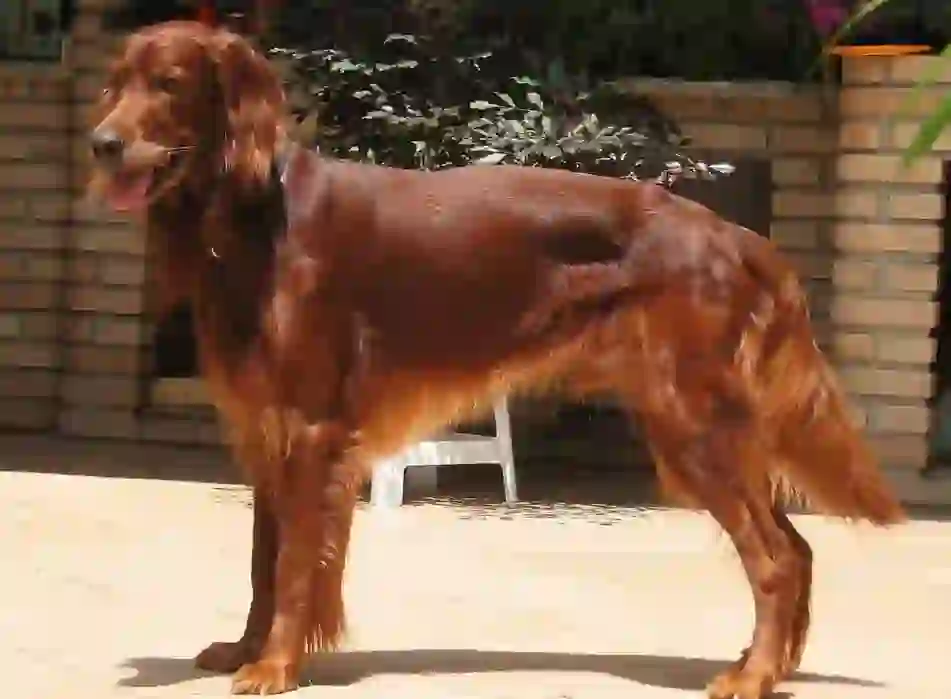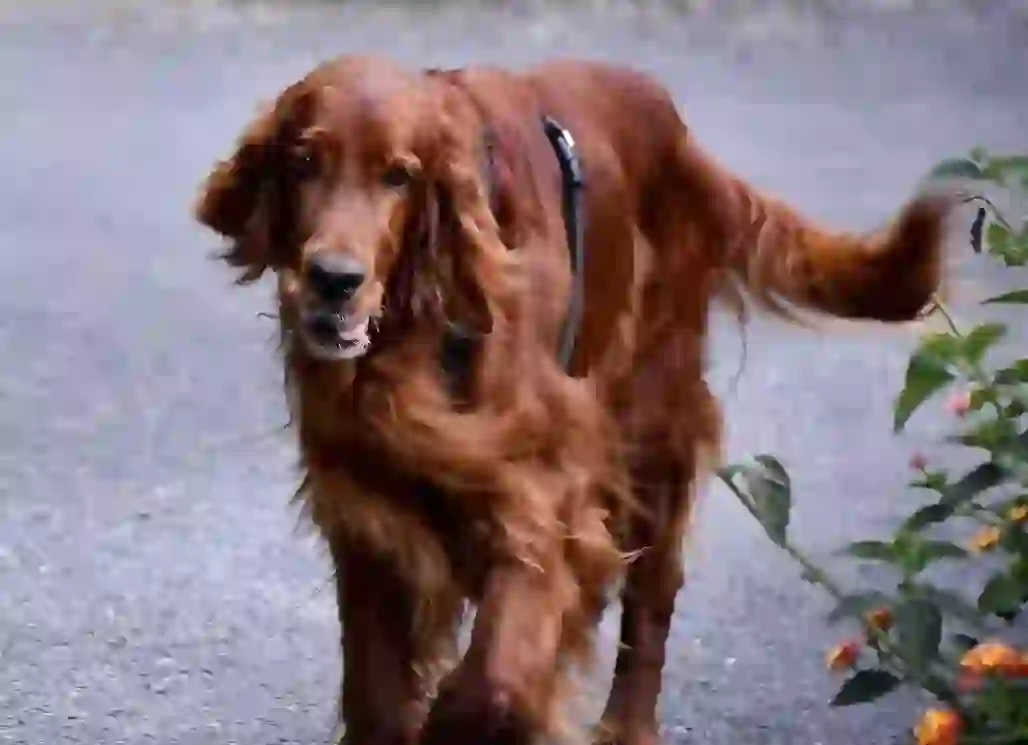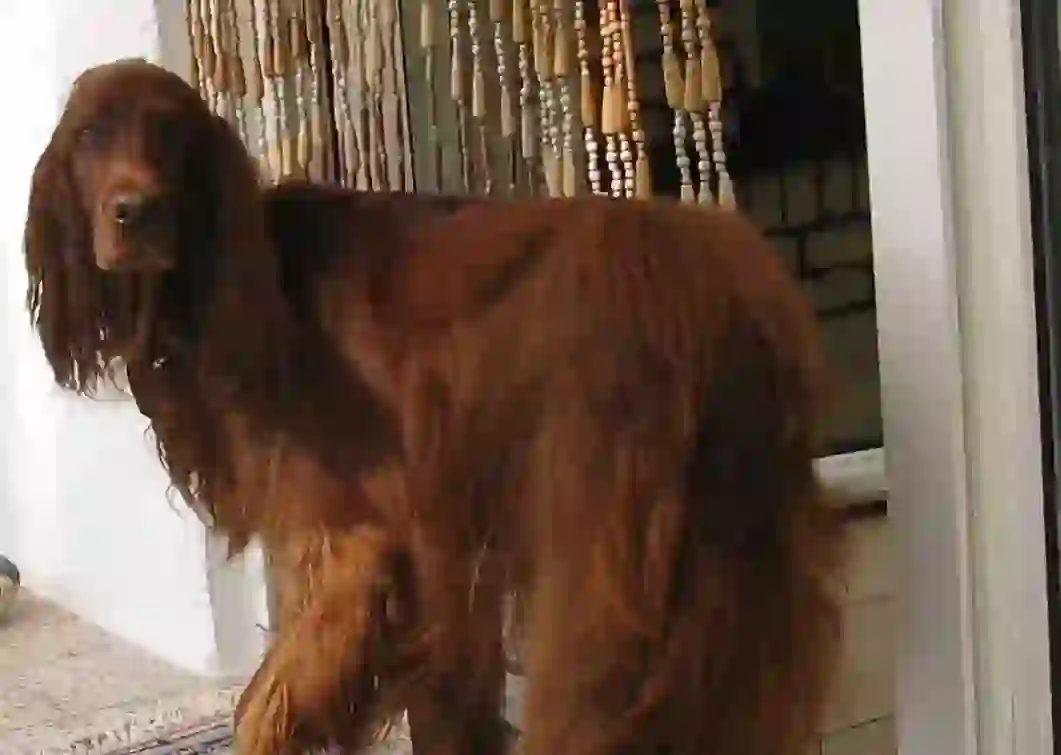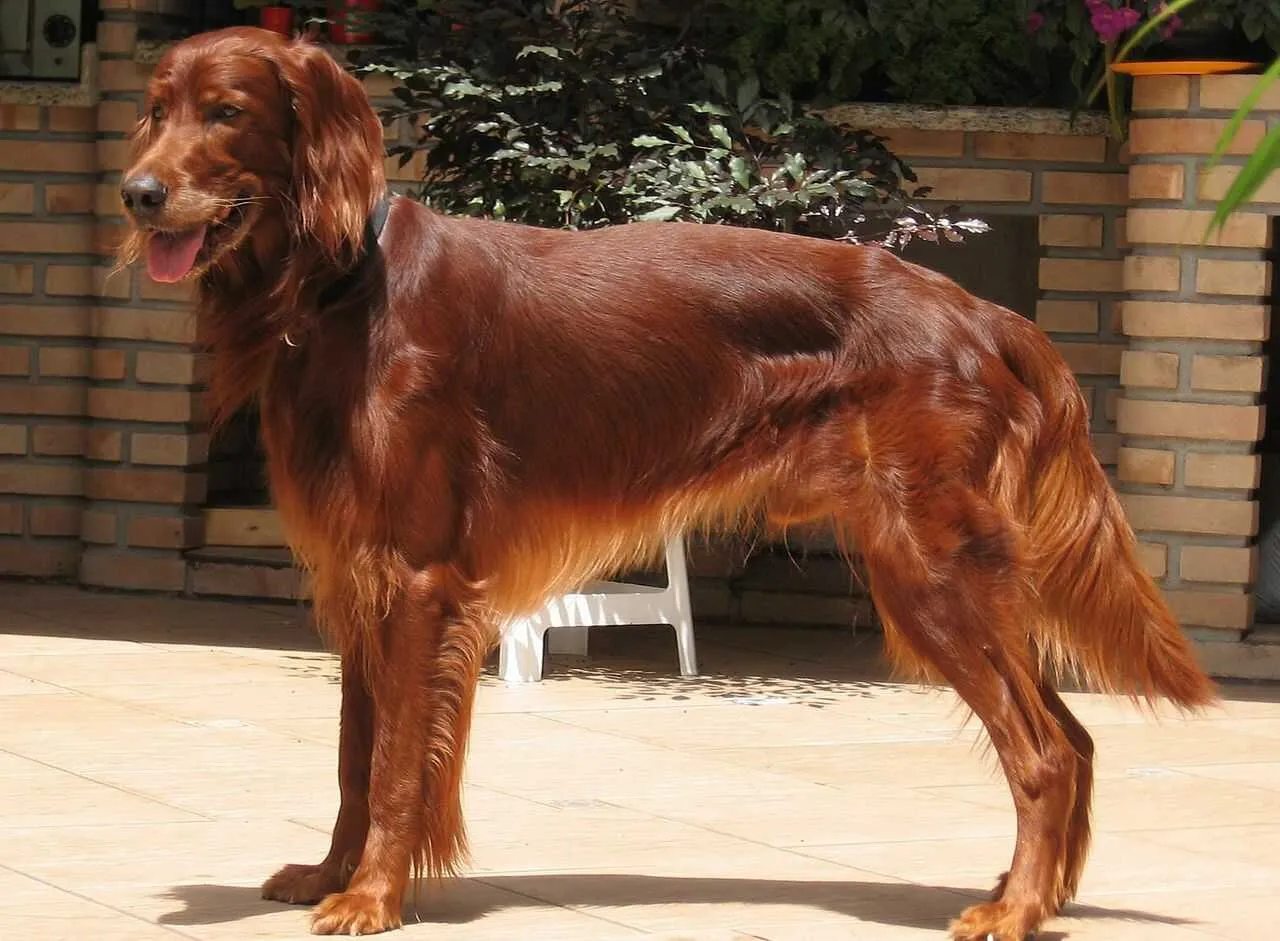
Irish Setter
Irish Setter
Irish Setter
Have you heard of the dog breed 'Irish Setter'? With a sleek body and beautiful red coat that exudes elegance, the Irish Setter also has a childlike personality that stirs maternal instincts. This article introduces the multifaceted Irish Setter!
Irish Setter Basic Infomation

Basic Information
Country of Origin: Ireland Height: Males 67-69cm Females 62-64cm Weight: Males 32-33kg Females 27-28kg Originally a hunting dog, the Irish Setter is intelligent, obedient, and highly athletic. They have a sleek build, gentle face, and beautiful flowing red coat. Despite their narrow shoulders, giving them a slim appearance, they have well-developed muscles. They have long, drooping ears and a long neck. Their red coat comes in various shades, such as mahogany red, chestnut, and rich chestnut. Some may have white markings on their chest, throat, or toes. The coat color deepens with age, becoming more beautiful. The long, glossy red hair flows in the wind, especially on the ears, legs, belly, chest, and tail, enhancing their beauty. This decorative hair not only adds to their appearance but also protects their bodies when moving through dense vegetation. As hunting dogs, they have large hearts and lungs, which make their chests appear prominent. The slim body and large heart and lungs give the Irish Setter a unique chest shape.
Irish Setter Q&A

What is the Origin of the Name Irish Setter?
The name Irish Setter comes from their country of origin and their role as gundogs. The term 'setter' derives from their hunting behavior, where they would 'set' by crouching low to signal the presence of birds to hunters. 'Irish' indicates their origin in Ireland. Interestingly, the name Irish Setter was also used for a line of men's boots by the Red Wing Shoe Company. The leather used for these boots resembled the color of the Irish Setter's coat, hence the name.

What is the Personality of the Irish Setter?
Irish Setters are intelligent, loyal, and resilient. As hunting dogs, they possess physical and mental strength. They are cheerful, gentle, social, and affectionate, getting along well with humans and other dogs. They dislike conflict and prefer harmonious relationships. Despite their large size, they retain a playful, childlike nature even as adults, endearing themselves to their owners. They can be mischievous, which only adds to their charm. The hunting instinct can still be strong, causing them to react to moving objects like cats or small animals. This multifaceted personality makes the Irish Setter a unique breed.

How to Care for an Irish Setter?
Irish Setters are usually obtained from breeders or adoption. It's important to inquire about the parents' health due to potential hereditary diseases. Irish Setters thrive on human interaction and are best kept indoors with the family. If kept outdoors, ensure they receive plenty of attention. Due to their size and high energy levels, a spacious home is ideal. They are sensitive to extreme temperatures, so during hot summers or cold winters, they should be kept indoors. When kept in homes with infants or small children, supervise interactions to prevent accidental injuries due to their size. Irish Setters enjoy playing with children and can be great companions.

Do Irish Setters Need a Lot of Exercise?
As hunting dogs, Irish Setters have high stamina and speed, requiring plenty of exercise. They historically ran over 100km daily during hunts. Ensure they get two daily walks, each lasting 30-60 minutes, and allow them to run in dog parks. They enjoy playing with balls and frisbees and love swimming. Owners need to be fit to keep up with their exercise needs. Incorporate varied routes and activities to prevent boredom. During hot weather, walk them in the early morning or late evening. In cold weather, provide a coat for warmth. Lack of exercise can lead to behavioral issues, so it's crucial to keep them active and engaged.

What Kind of Food Do Irish Setters Eat?
Feed Irish Setters a complete diet labeled as 'complete and balanced.' Given their muscle mass and activity level, choose food with meat as the primary ingredient. Follow the feeding guidelines on the dog food packaging, adjusting the amount based on their weight. Divide their daily food into several meals to prevent digestive issues.

Do Irish Setters Chase Cats?
Irish Setters may instinctively chase cats and small animals due to their hunting background. It's important to train them from a young age to prevent such behavior. Begin training and socialization from the day they arrive home, helping them adapt to their environment. Though training may be challenging due to their playful nature, they are intelligent and retain learned behaviors.

Is It Hard to Maintain the Irish Setter's Beautiful Coat?
Regular grooming is necessary to maintain the Irish Setter's beautiful coat. Brush them every 2-3 days, focusing on the belly where dirt and debris collect. During shedding season, brush them daily. Use a bristle brush to maintain shine. Bathe them monthly or when they get dirty. Professional grooming is also an option. Due to their floppy ears, they are prone to ear infections. Clean their ears regularly to prevent issues.

What Diseases Are Irish Setters Prone To?
Irish Setters can be prone to certain diseases, including hereditary conditions. Awareness and preventive care can mitigate risks. 'Gastric torsion': Common in large, deep-chested breeds, this condition involves the stomach twisting. Prevent it by feeding smaller meals, avoiding exercise around mealtimes, and monitoring water intake. 'Hip dysplasia': A hereditary condition where the hip joint is malformed. Check the parents' health and manage the puppy's weight and exercise to prevent exacerbation. 'Progressive retinal atrophy': A hereditary condition causing vision loss. Confirm the health of the parents and regularly check the dog's eyes with a vet. Treatment options are limited, but supplements like vitamin E and astaxanthin may help. 'Ear infections': Common in floppy-eared breeds. Regular cleaning can prevent infections. If there's an unusual odor or excessive earwax, consult a vet. Irish Setters typically live 12-15 years, a relatively long lifespan for a large breed. Ensure they receive loving and attentive care throughout their lives.

Would you like to become a part of the 'Animalbook.jp'?
Turn your knowledge into Q&A and share it with the world. ※Publication will be activated after purchase. Let's share information together!
Irish Setter Type of List

Information
Congratulations! You are the first commenter!

Create Your Favorite List!
Irish Setter
Save the animals you love! Build your own list to quickly revisit your favorites later.

Would you like to leave a comment?
※Please note: This is for the purchase of rights to post comments within the article.
Find Your Favorites!
Our shop offers a unique and attractive selection of goods themed around various animals.
Irish Setter References
Irish Setter Introduction of media used

Help Enrich Our Animalbook.jp with Your Media!
We are constantly looking to expand and enrich our Animalbook.jp with amazing photos and videos of animals. If you have any media that you'd like to share, please contribute and help us showcase the beauty and diversity of the animal kingdom. Your submissions will be credited and featured in our encyclopedia, reaching a wide audience of animal lovers.





















